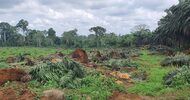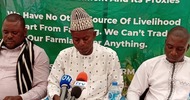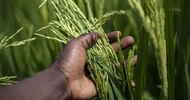Folha de S. Paulo | 09/05/2010 | translated by GRAIN (view original)
By Matheus Magenta,
Agencia Folha, in SalvadorExecutives from the South Korean company Hyundai are negotiating with state governments for the purchase of land in Brazil, with the objective of planting and exporting soya to South Korea.
Company executives visited the state of Piaui last week and in June they will be holding meetings with government officials in Maranhao, Tocantins and Bahia.
The Koreans want to buy 10,000 hectares but they still do not have a timescale for closing the deal. According to the director of Hyundai Corporation in Brazil, Gi-Seob Kim, the project is “very recent”.
This is not the only Asian initiative in Brazilian agribusiness. Since the beginning of the year, at least nine groups, including Koreans, Chinese and Indonesians, have visited the country, looking for land which they can cultivate and then export the produce.
The investment is seen as strategic for these countries’ food supply, as they have large populations and little arable land.
South Korea, for example, has only 0.6% of Brazil’s arable land. This area, a bit smaller than the state of Sergipe, has to supply a population of 48.5 million people. According to Gi-Seob Kim, various companies from his country bought land in other countries several years ago so that they could export food.
Hyundai, itself, is an example: in 2009 the company bought 10,000 hectares in Russia to plant soya and maize. The first harvest took place in April of this year: 4,500 tonnes of soya and 2,000 tonnes of maize – all of it exported to South Korea.
According to Gi-Seob, the idea is to reproduce this same project in Brazil. Here the company wants to plant exclusively soya, one of the main inputs of the food industry, and to harvest 50,000 tonnes a year, with part of it processed locally before being exported. This volume corresponds to 4% of the all South Korea’s soya imports.
China
In spite of the Korean initiative, the country that has shown most interest in purchasing land in Brazil has been China, the world’s biggest importer of soya.
According to the director of the Brazil-China Chamber of Commerce, Kevin Tang, six Chinese groups, three of them with state participation, have expressed interest in buying land in Brazil.
Although he was unwilling to reveal the names of the companies or the location of the areas where they plan to invest, Tang said that they are targeting the northeast of Brazil, where land is cheaper.
The west of Bahia and the south of Maranhao and Piuai have been identified as preferential areas for investment. The state government of Paiui says that eight million hectares in that state are available.
On the look out for a good opportunity, the government of Bahia will take a business delegation to China this week to investigate further the level of interest.
According to Tang, the Chinese are not only interested in guaranteeing its food supply but also in ensuring that the country does not continue to rely so heavily on the big trading groups and can have more control over the price it pays for its commodities.
Specialists deny loss of sovereignty from Asian initiative
The Asian companies are not just targeting Brazil.
Japanese, South Korean and Chinese companies have bought – or are planning to buy – land in South America, Africa and other parts of Asia itself, with the idea of planting soya, maize and other crops.
Since 2003 a Japanese company has owned 1,250 hectares of land in Argentina, where it cultivates soya and maize, which are then exported to Japan. All the employees in the project are Japanese.
China’s presence in similar undertakings in Africa has been dubbed “neocolonialism” by specialists and is regarded with concern by the FAO (the UN’s Food and Agricultural Organisation). According to Jacques Diouf, the Director-General of the FAO, it is important to prevent the local population being hurt by these deals.
For specialists, however, this kind of problem should not occur in Brazil.
According to Andre Cunha, who has a PhD in economics from Unicamp (University of Campinas), foreign penetration is easier when the state is badly structured, which is not the case of Brazil.
In the opinion of Paulo Vizentini, lecturer in international relations at UFRGS (Federal University of Rio Grande do Sul), Brazil could even benefit from this type if investment, given that it possesses a large area of unused land.
Agribusiness
The high level of organisation in Brazilian agribusiness can also stem the entry of foreigners. The Secretary for Agriculture in the State of Goias, Leonardo Veloso, said that the Chinese had shown interest in acquiring land in his state but had been “frightened” by the level of technological development.
One of the options for purchasing land in Brazil is the formation of joint ventures, says the president of Apex (Brazilian Association for the Promotion of Exports and Investment), Alessandro Teixeira.
The problem with the Chinese buying land, he said, is that their farming techniques are different from Brazil’s, from the type of crop grown and the type of land to the technology used, and this makes the deal difficult.
Source: Folha de S. Paulo













